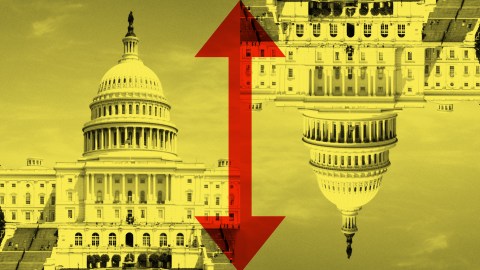On median, one U.S Senator is as rich as 40 American households

No, it’s not your imagination: Elected officials in Washington really are out of touch with us common people. Why is that?
Just take a look at these charts with data from The Atlas.

See that small decline around the time of the Great Recession of 2008/2009? That's the brief and not-very-dramatic hit that congress members took when the economy nosedived.
Now, compare that with the rest of us:
As Quartz reports, in 2015 the median net worth of a US Senator was $3.2 million, for a Congress member it was $1.1 million, and for members of the House of Representatives it was $900,000. Meanwhile, the typical American household for 2015 was worth just under $80,000.
So the question should be, I suppose: Should people with this much more median wealth than the rest of us really create and pass laws that affect the daily lives of the 99%?
One famous economist, Thomas Piketty, had something to say about that.
“For millions of people, 'wealth' amounts to little more than a few weeks’ wages in a checking account or low-interest savings account, a car, and a few pieces of furniture. The inescapable reality is this: wealth is so concentrated that a large segment of society is virtually unaware of its existence, so that some people imagine that it belongs to surreal or mysterious entities. That is why it is so essential to study capital and its distribution in a methodical, systematic way.” Piketty wrote in Capital in the Twenty-First Century.
However, it’s not just Congress that is getting wealthier; a study was released in early 2018 that showed the vast gap between those who have and those who have not is getting even worse.
And another economist and professor, Robert Reich, had this to say in a 2013 PBS interview:
"No economy can continue to function when the vast middle class and everybody else don't have enough purchasing power to buy what the economy is capable of producing without going deeper and deeper into debt."
Reich also co-wrote and stars in a documentary about exactly this phenomenon, Inequality For All.
Where will all of this lead? Again, Piketty has a somewhat prescient yet terrifying prediction. “I’m afraid that if you don’t find peaceful domestic solutions to our inequality and social problems, then it’s always tempting to find other people responsible for our problems," he writes.





